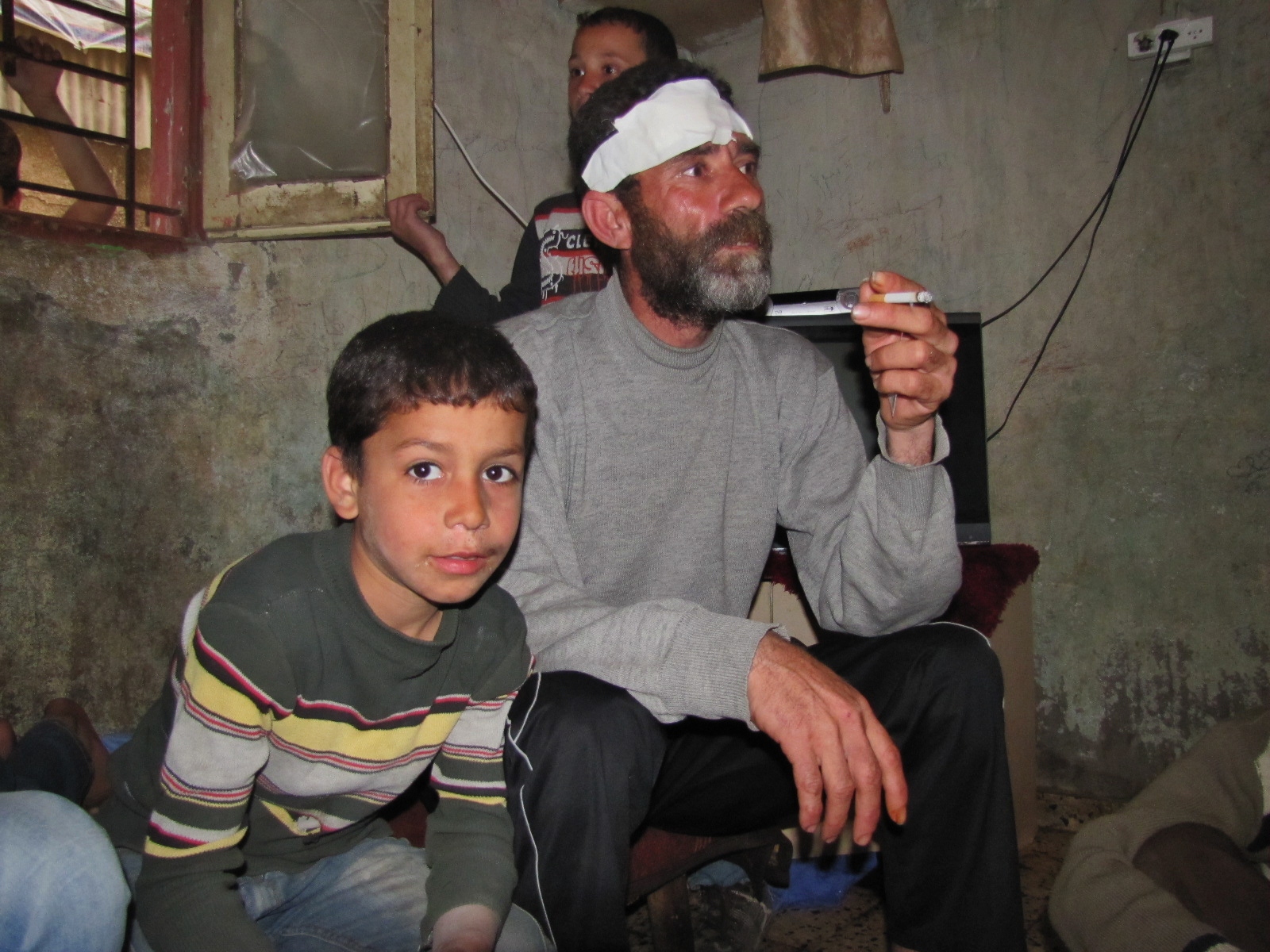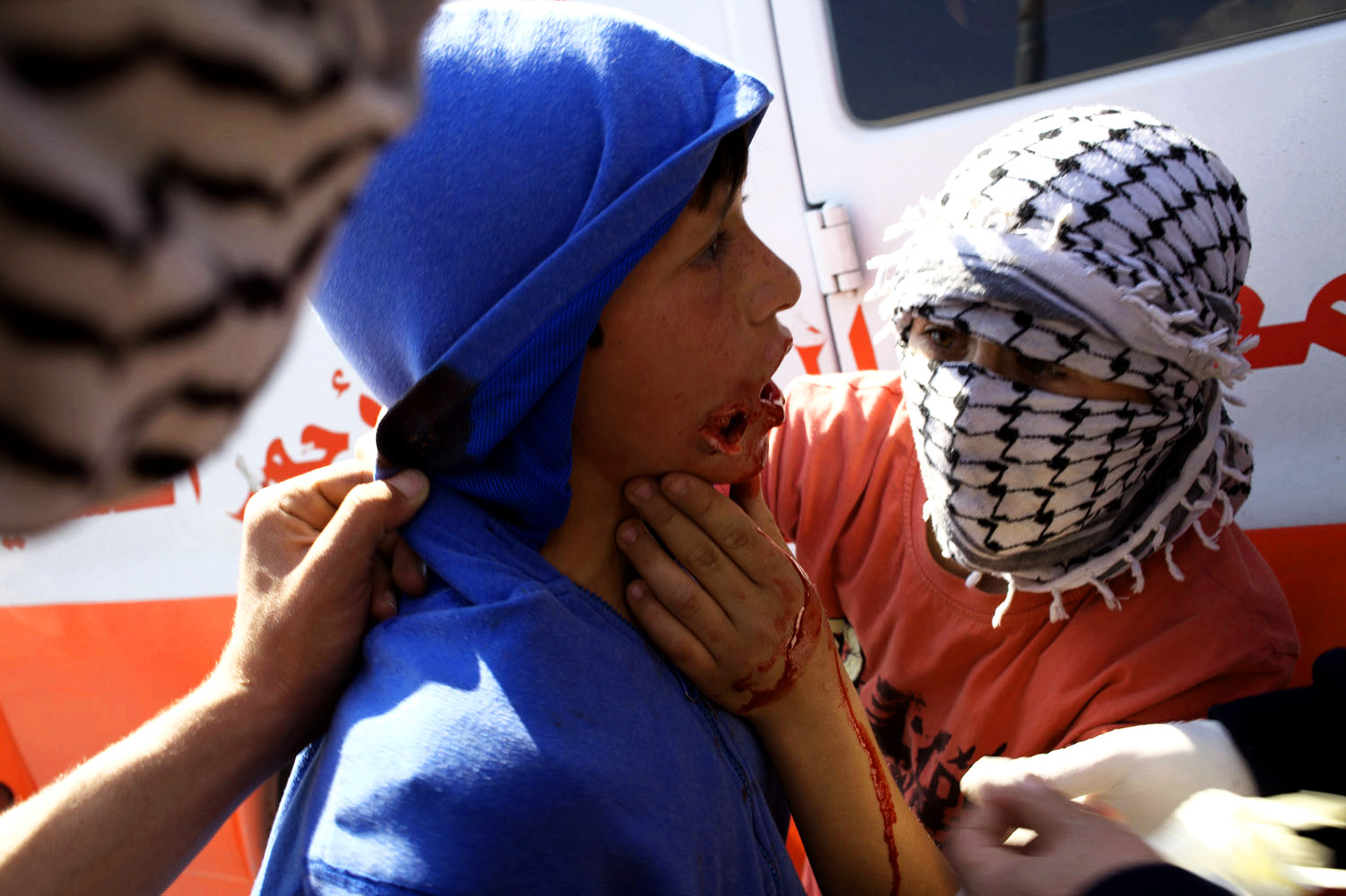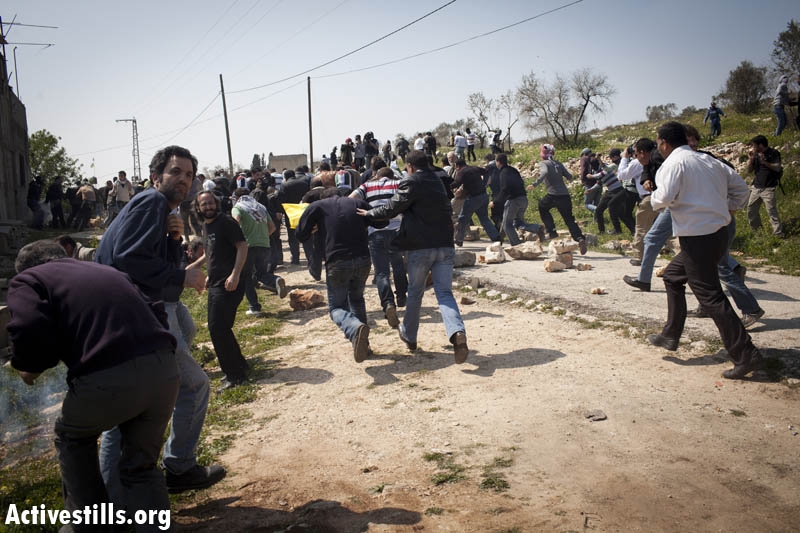Category: In the Media
-
Khamis, injured by the Israeli navy while fishing in the waters of Gaza
by Rosa Schiano 27 March 2012 | il Blog di Oliva A Palestinian fisherman, Khamis Baker, was injured on Sunday morning when the Israeli navy opened fire on a group of Palestinian fishing boats in the waters of Gaza. The Khamis family’s home, in Al-Shati camp (“Beach” camp), is poorly lit , the ceiling falls…
-
Nabi Saleh: Israeli Soldiers Shoot 15 year old in the face with rubber coated steel bullet
by Jonathan Pollack 23 March 2012 | Popular Struggle Coordination Committee The bullet shot from a short distance hit the boy in the face penetrating his right cheek and piercing it. Israeli Border Police officers shot a rubber-coated bullet at 15 year-old Ezz Tamimi’s face from a distance of about 20 meters, during the weekly…
-
Awaiting release and hearings of local activists, Kufr Qaddoum met with more Israeli violence
by Robin and Leila 23 March 2012 | International Solidarity Movement, West Bank It was under a bright, sunny sky that the people of Kufr Qaddoum once again gathered to protest against the roadblock which isolates them from the rest of the West Bank. The past week there had been much frustration and anger since Murad Ashtawi, member…



